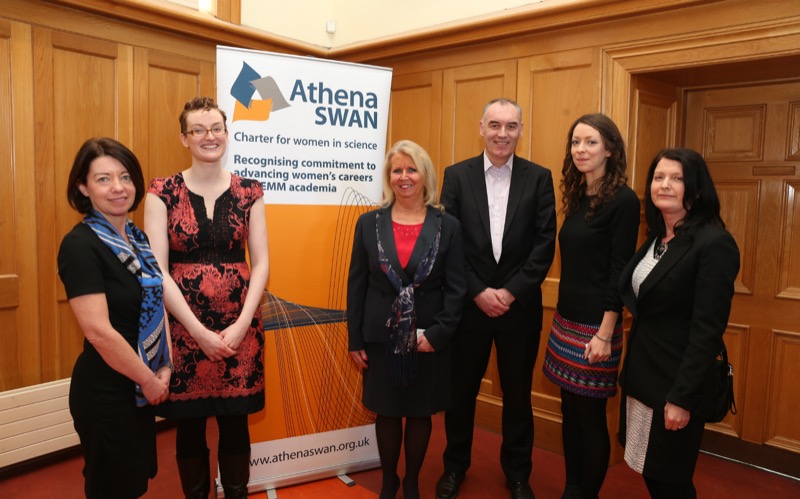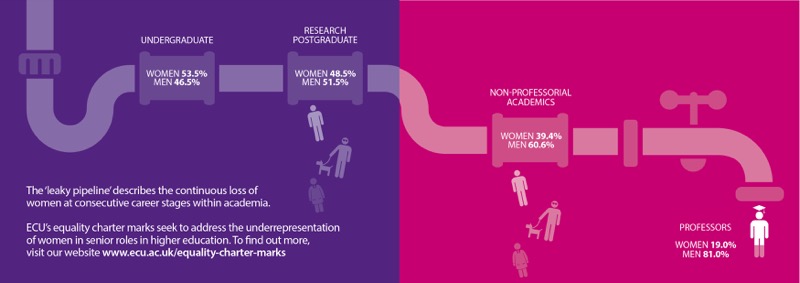Trinity Joins Charter in Pledge to Promote Gender Equality
Posted on: 05 February 2015
Trinity College Dublin today joined six other Irish universities, as well as 14 institutes of technology and the Royal College of Surgeons, in signing up to a charter committing them to advance women’s careers in science, technology, engineering, mathematics and medicine (STEMM) employment in academia.
In a major national initiative supported by the Higher Education Authority, the Athena SWAN Charter will be expanded to Ireland from today.
The Athena SWAN Charter, run by UK higher education equality body Equality Challenge Unit (ECU), is a programme that has had a proven impact on gender equality in higher education and research. By introducing the charter to all higher education institutions, HEA seeks to renew and refresh the Irish higher education system’s commitment to gender equality.

Launching the charter in Dublin today, Minister for Education and Skills, Jan O’Sullivan said: “It is important that our higher level education sector fairly represents the diversity and innovation that are at the heart of Irish society. In the area of STEMM women play a key role in teaching, cutting-edge research and building links with industry and the wider community.”
“Actively promoting gender equality is an important goal. Gender equality should be central to how all public organisations operate. The principal of equality demands nothing less.”
“Ensuring the fair representation and career progression of female academics is also important in retaining Ireland’s international reputation for the quality and impact of our scientific community.”
“I congratulate the institutions who have signed up to ECU’s Athena SWAN Charter, who will be playing a part of building cultures where all, whatever their gender, can thrive.”

Figures published by the Higher Education Authority in December highlighted gender inequality as an issue for the higher education sector. Across Irish universities, only 19% of professors are women. In institutions of technology, women make up 45% of academic staff but just 29% of senior academic staff. In subjects such as physical science, mathematics, ICT and engineering the gender balance drops even further.
Director of the Women in Science & Engineering Research (WiSER) and Professor in Systems in the School of Computer Science and Statistics at Trinity, Eileen Drew, added: "This is not just about ‘fixing the numbers’ but instead it represents a way of changing the culture.”
“I hope that we will continue to celebrate our existing achievements and future Athena SWAN awards that are set to transform the sector in Ireland, in producing not only gender equality but enhancing our capacity for excellence in teaching and research and transforming the culture in which knowledge is valued and imparted."
